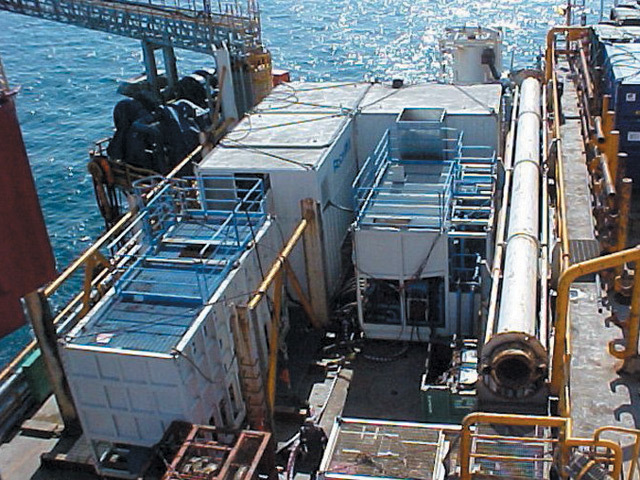
An Aberdeen company which has won the first offshore processing contract in Angola admits it faces a challenge to hit the deadlines facing the oil industry off the African coast.
The country has introduced a zero tolerance approach to discharging anything with oil based muds into the sea.
TWMA confirmed at Offshore Europe has picked up a $35million deal to provide offshore processing for the mud produced during the race to explore the West African country’s energy reserves.
But Rob O’Neill, sales director with the company, told Energy Voice they will face a race against the clock to finish the job in the timescale demanded by Angola’s new legislation.
“I think a lot of the operators never really believed it would happen, then last year they came along and announced this zero discharge degree that anything with oil based muds could no longer be discharged into the sea,” he said.
“The operators have not been caught off guard, but they’ve got a limited time to try and comply and our contract win is to go and process the oil based muds offshore.
“We would ideally have liked several months to engineer solutions to these problems, particularly as the contracts we’ve got are on new-build drillships. When you’re condensing that into weeks rather than months, it becomes a challenge.
“Not all challenges can be overcome, so we are having to look at quicker fixes to get us there. But once we are there we will engage and develop the process until we get a fully specced, fully operational system.”
TWMA is to develop a new onshore support facility in Luanda for the project, which is set to generate up to 50 new jobs in Aberdeen and the African country over the next year.
The rush for oil and gas off the western African countries has significantly increased, with the huge reserves off the coast of Mozambique the latest target for development.
But while the riches on offer could transform the countries, O’Neill said they are also significantly ahead of their more developed counterparts on environmental protection issues.
“It’s not the area you associate with environmental compliance but they’re streets ahead of the US, Brazil, Australia in adopting this,” he said.
“Nigeria, Angola, Cameroon, Ghana – they’re all looking to go down the same route. When the legislation becomes tighter our job becomes easier.”